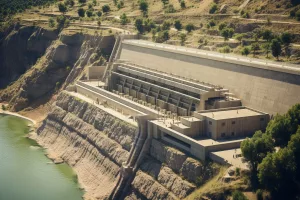Bongi Mbonambi, the South African hooker, has been cleared of allegations of racial discrimination made by England’s Tom Curry during the Rugby World Cup semifinal. World Rugby conducted an exhaustive investigation, finding insufficient evidence to charge Mbonambi with misconduct. His acquittal allows him to participate in the World Cup final, which promises to be an electrifying and closely fought contest between the Springboks and All Blacks. The rugby community must embody the values of respect, integrity, and solidarity to ensure that rugby remains a symbol of hope, unity, and excellence in the world of sports and beyond.
South Africa’s Air Force is in crisis, with over half of its aircraft nonoperational due to a shortage of spare parts and budget limitations. Combat aircraft like the Gripen and Rooivalk attack helicopters are most affected, leaving the country’s airspace vulnerable in times of crisis. The crisis is blamed on mismanagement, neglect, and a lack of political will. A significant investment, efficiency improvements, and collaboration with international partners are needed to restore the air force’s strength and ensure the nation’s safety.
South Africa’s education system is getting a revamp through the Basic Education Laws Amendment (BELA) Bill, which focuses on making the system more inclusive, equitable, and efficient. The bill addresses administrative challenges such as admissions policies and financial accountability systems while promoting inclusivity for learners with special needs. Despite controversy surrounding false information about the bill, it remains a vital step in transforming the country’s basic education landscape and laying the groundwork for a more equitable and efficient education system.
The 2023 World Rugby Awards is approaching, featuring an impressive list of nominees such as Manie Libbok, Eben Etzebeth, and Jacques Nienaber. Rising stars Louis BielleBiarrey, Tamaiti Williams, and Mark Tele’a are also nominated. The award categories include Breakthrough Player of the Year, World Rugby Men’s 15s Player of the Year, and World Rugby Coach of the Year. The nominees represent a perfect blend of forwards and backs and have all made significant contributions to their teams’ achievements in 2023.
South Africa is facing a food insecurity crisis due to high food prices and waste. Onethird of all food produced in the country is wasted, leading to the loss of more than 10 million tons of consumable food annually. Simplifying date labels and potentially extending “best before” dates can reduce food waste and improve food security. Organizations like FoodForward SA are working to redirect surplus food to vulnerable segments of society, contributing to a more sustainable and fair food system for all citizens.
South Africa is taking action to address the high rates of teenage pregnancy and HIV infection among young people by introducing Adolescent and YouthFriendly Services (AYFS) in primary healthcare facilities. These youthfriendly zones aim to provide a supportive environment that is approachable and inviting for adolescents and young adults to seek vital healthcare services, such as reproductive health and family planning. The Emalangeni Clinic in Lusikisiki serves as a positive example of the success of these zones, encouraging more young people to access crucial healthcare services, which could lead to a reduction in teenage pregnancies and HIV infection rates.
Dr. Mariëtte Wheeler, a Life Sciences teacher at Protea Heights Academy, has been named one of the top 10 finalists for the Global Teacher Prize. The prestigious award recognises outstanding educators around the world, and Dr. Wheeler’s innovative teaching techniques and dedication to education have landed her a spot among the best. As she competes for the ultimate prize, her journey serves as an inspiration to educators everywhere, showing that exceptional teachers have the power to transform lives.
The South African Police Service (SAPS) has made remarkable progress in eradicating the illegal drug trade under General Fannie Masemola’s leadership. Recently, SAPS supervised the destruction of R800 million worth of drugs seized during operations across the country. SAPS’ persistent and diligent efforts have made a significant impact on the local drug trade and aided the global fight against organized crime, with drug demolitions becoming a regular occurrence. SAPS’ commitment to ensuring compliance, collaboration, and dedicated officers’ bravery and vigilance have made a significant contribution to creating a safer environment for all and defending citizens against the threat of illegal drug trafficking.
The Matric Class of 2023 must prioritize road safety during their National Senior Certification exams. By learning and following road rules, fostering safety awareness, and emphasizing public transportation and pedestrian safety, students can ensure a secure journey to and from school. Schools, parents, educators, and the broader community must work together to cultivate a culture of safety and accountability on the road, promoting a brighter future for everyone.
Cape Town is planning the largest social housing development in the inner city, with 1,800 units in the Salt River suburb, including 840 social rental units for families earning less than R22,000 per month, along with various onsite services. The project aims to create inclusive and diverse living environments, addressing the needs of residents and providing a highquality living space. This ambitious housing project demonstrates the city’s commitment to addressing the urgent need for affordable housing and signals a forwardthinking future for Cape Town.
The 2023 South African municipal byelections brought significant changes in the nation’s political landscape. An Independent Candidate won a seat, while the ANC retained a seat and won another, and the DA maintained their hold on a seat. These results suggest potential shifts in the nation’s political landscape. The rise of Independent Candidate Jacobus Cornelius Stoltz in Lekwa Municipality’s Ward 04 in Mpumalanga underscores a significant shift in voter preferences. The ANC’s mixed results illustrate the intricate dynamics present in South African politics, and the DA’s performance highlights the party’s stronghold in certain regions.
The recent trial blasting at Clanwilliam Dam is a crucial milestone in the longawaited construction phase to increase the dam wall’s height by 13 meters. The project will provide additional water resources to the region’s agricultural industry, generate employment opportunities, and boost the economy along the West Coast corridor. The trial blasting involved drilling 116 holes, consuming 920 kg of explosives, and excavating approximately 1253 m3 of hard rock, paving the way for regular blasting operations and establishing safety measures. The project’s success will improve the lives of the people living in the West Coast region and contribute to overall development.
The Thuntsha Lerole Programme is a comprehensive service delivery initiative in South Africa that aims to improve the standard of living for inhabitants of Ramotshere Moiloa Local Municipality by offering a wide array of government services. The programme focuses on infrastructure enhancements, community development, and environmental matters, and is being implemented in local municipalities throughout the province. With a coordinated and integrated strategy, the programme serves as a model for future service delivery initiatives in South Africa.
Dr. Fred Calitz was a highly respected figure in South African education, who passed away in October 2023 at the age of 87. He was instrumental in the development of Umalusi’s quality assurance frameworks, and his unwavering commitment to ensuring the integrity, quality, and standard of examinations has left a lasting legacy within the South African educational landscape. Even after his retirement, Dr. Calitz continued to contribute to the organization, demonstrating his dedication to enhancing the quality assurance processes and approaches for the betterment of South Africa’s education system.
Cape Town has made significant progress in providing affordable housing and infrastructure improvements for its rapidly growing population. The city has allocated a 3.2hectare site for a 1,800unit innercity housing initiative, and the Mayoral Priority Programme has approved over 2,000 social housing units across seven land parcels. However, the national social housing subsidy regime and budget reductions pose challenges for the city’s social housing sector. Despite these obstacles, Cape Town remains committed to investing in infrastructure, particularly in water and sanitation, and is a leading city in inclusive and sustainable growth.
Dr. Naledi Pandor, South Africa’s Minister of International Relations and Cooperation, participated in two United Nations Security Council debates on the Middle East conflict and women’s role in peace and security. The Middle East debate centered on the ongoing conflict between Israel and Palestine, while the Women, Peace, and Security discussion discussed the critical role of women in international peace, conflict resolution, and security. Dr. Pandor’s engagement in these debates demonstrated South Africa’s commitment to promoting peace, gender equality, and international collaboration.
















